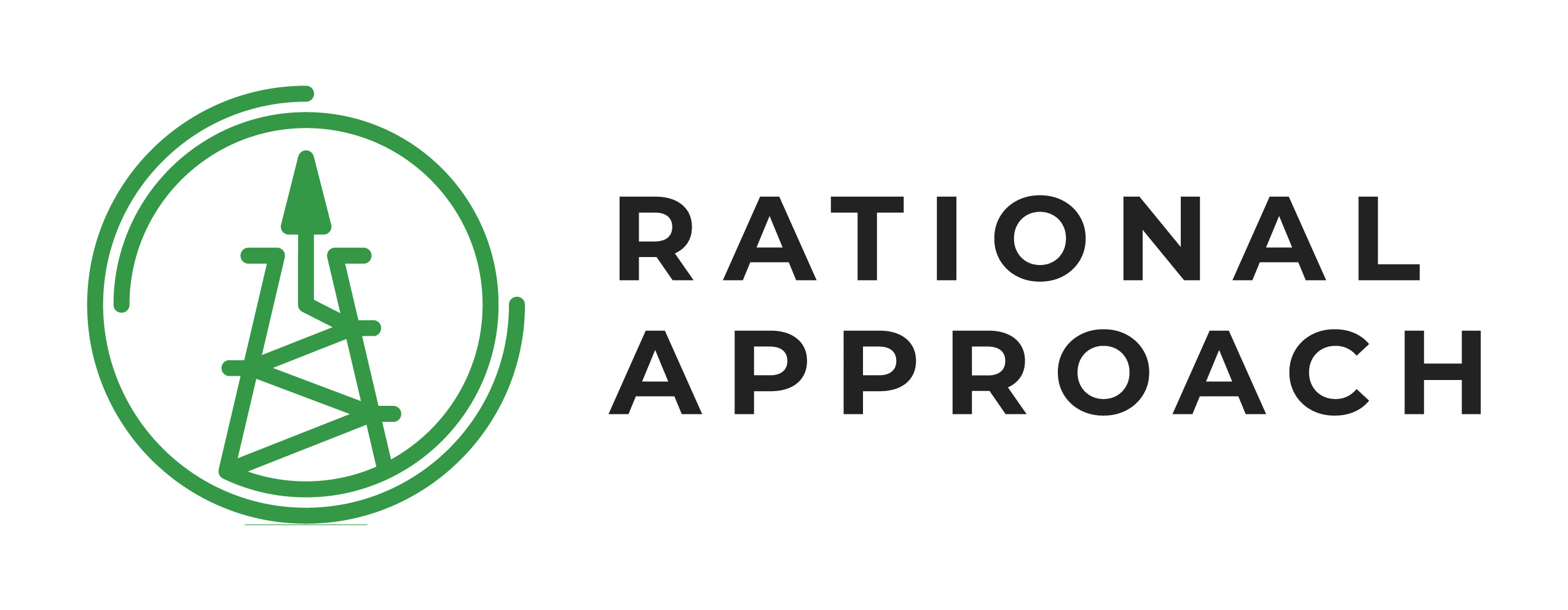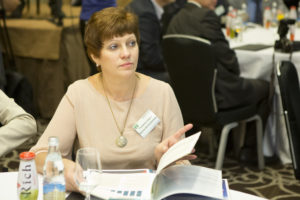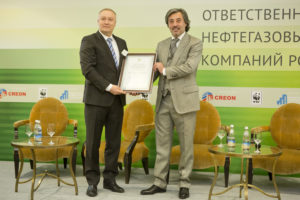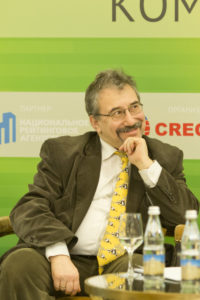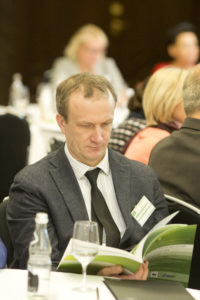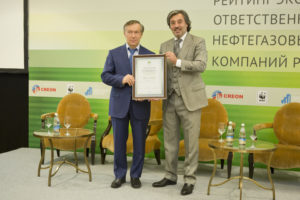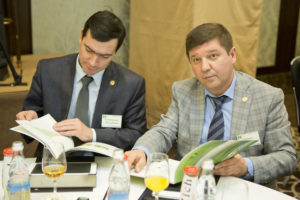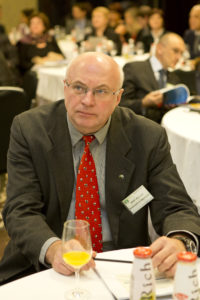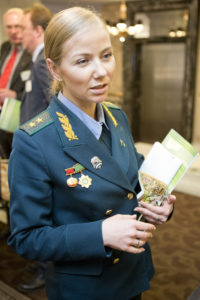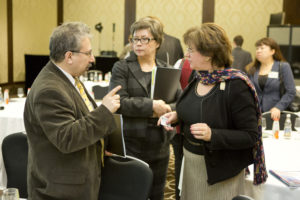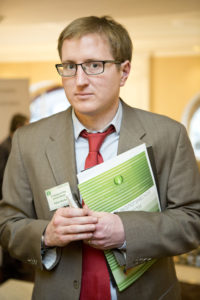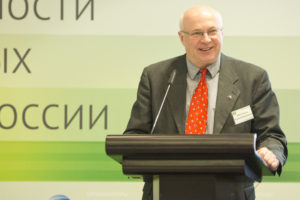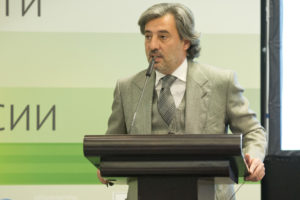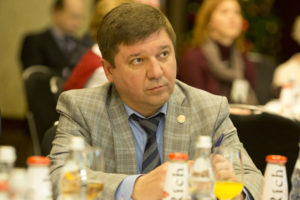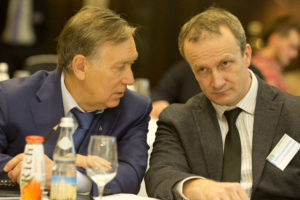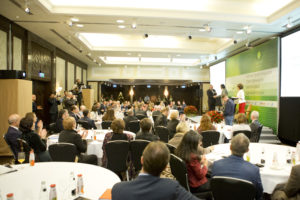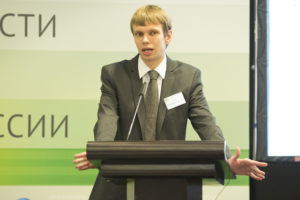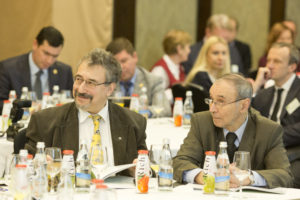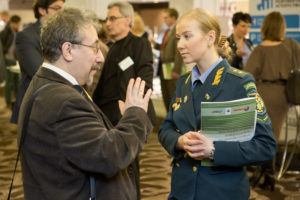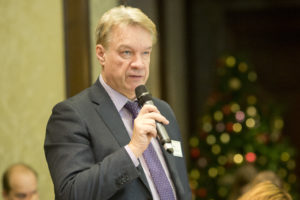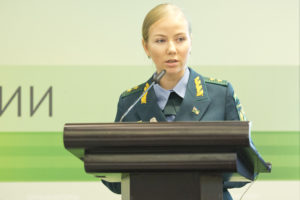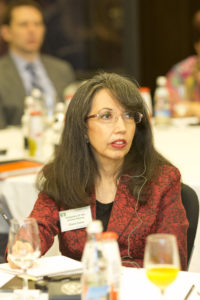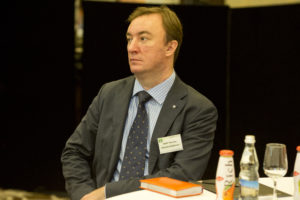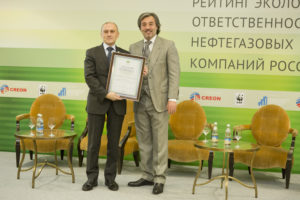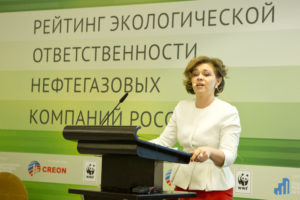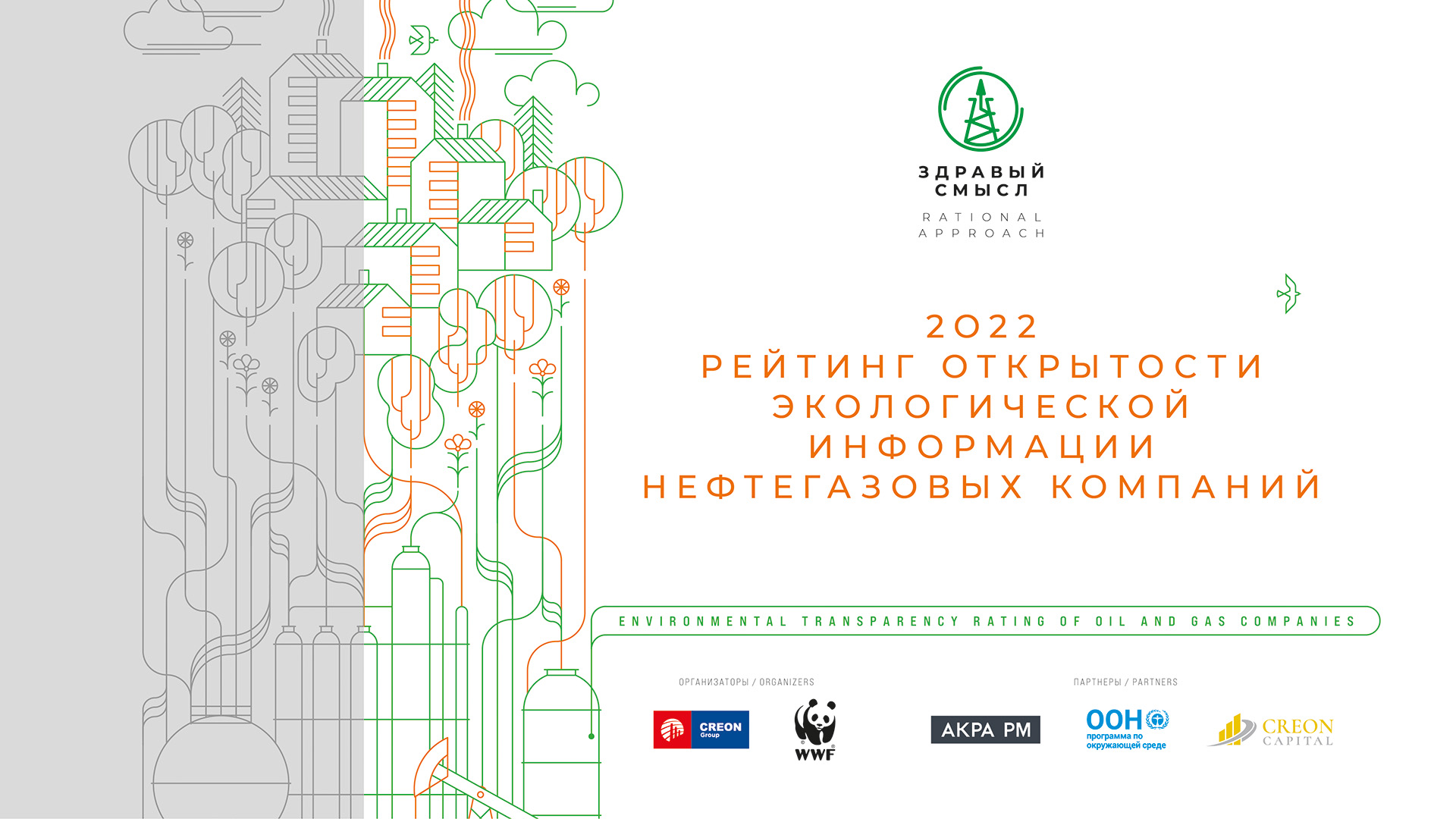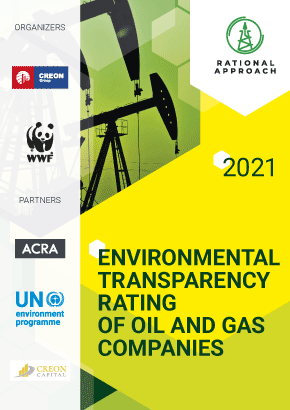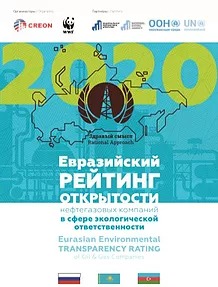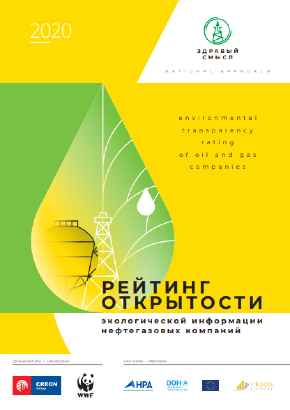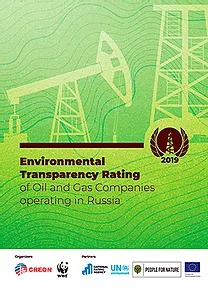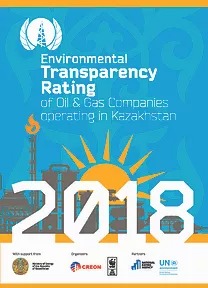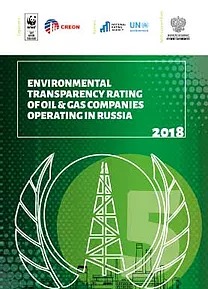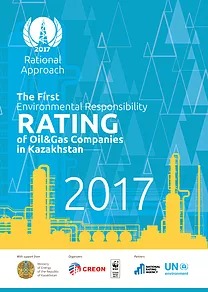The announcement ceremony dedicated to the results of the first Environmental Responsibility Rating of Oil & Gas Companies in Russia took place this December 9 in Moscow. The Rating was jointly organized by CREON group of companies and WWF Russia with participation of National Rating Agency (NRA).
The event gathered representatives of the industry, related state agencies, oil and gas companies, NGOs, as well as prominent environmentalists and journalists. In his address to the audience, Fares Kilzie, the head of CREON group of companies, underlined that “…the Rational Approach project represents the full-fledged civil initiative of fellow-thinkers, who are concerned with protection of the environment. The project in support of the “green economy” was initiated in the beginning of 2014 and aims at converging business development and environment protection interests. The first part of the project is to establish Russian oil&gas companies’ environmental responsibility rating, and Mr. Kilzie noted that “…neither party or participant to the event were pressed in any way during the rating compilation; information was provided by companies in a varying scope, but on the voluntarily basis at all times. In this respect, every participant can be deemed a winner to a certain extent”.
The project will be further extended through business events focusing on ecological issues in fuel-and-energy industry and publication of corporate information on undertaken environmental protection measures by participating companies on the Rational Approach corporate site. Furthermore, CREON group of companies is fully ready to provide a permanent site for experience exchange as well as sharing innovative solutions in the field of green oil&gas production and processing. All that shall support environmentalization of oil&gas production in Russia. CREON head thanked every rating participant for cooperation and expressed his separate gratitude to representatives of western companies and foreign embassies who were present at the event. According to Mr. Kilzie “this is truly a honorable feat for us, since environmental issues are, and should always be, of pivotal importance for the entire humanity, stretching far beyond particular political interests and disparities”.
The environmental rating is based on publicly available information on participating companies’ activities in the Russian Federation. This principle is a logical expansion of socially responsible business concept, which is the global rating goal. Evgeny Schwartz, Director for Conservation Policy, WWF Russia, told that Environmental Standards for Operations of Oil and Gas Companies Acting in Russia were developed and approved in Russia in 2004. Back then only two oil and gas production companies, Sakhalin Energy and TNK-BP, took part in preparation of this document. Today, a decade past, the situation is much better as almost all major production companies have instituted corporate environmental policies and included the above standards therein. Participation in the rating is the next stage of perfecting environmental protection activities. According to Mr. Schwartz the companies actively participated in discussions pertaining to the rating methodology development. Comments and additions continued to flow in even after the methodology was finalized. All that feedback, maintained expert, will be given due consideration and shall be taken into account during preparation of rating for 2015.
Natalia Sokolova, head of department, state environmental agency Rosprirodnadzor, took the floor to address rating participants. She stressed utter importance and topicality of the project, which both serves as the indicator of environmental responsibility level and stimulates perfection of the latter. The agency primary target is to identify and restraint ecological malpractice. However, the global goal of Rosprirodnadzor is rather the prevention of such malpractice, and the rating is a useful tool in this respect. Ms. Sokolova informed that the Ministry of Natural Resources starts development of the Environmental Progress Concept and Strategy in 2015, and welcomed all oil and gas companies to join the respective preparation committee. According to the civil officer, cooperation of business and state has the potential to drastically improve environment of the country and provide future generation with the chance to live on the clean planet.
“… and yet, in order to achieve the desirable results, we need to invest years of meticulous efforts. Russian state environmental policies have to be further perfected”, said Alexey Knizhnikov, Oil & Gas Programme Leader, WWF Russia. Measurability of footprint, transparency and social responsibility are the main factors of business progress in environmental protection, and these are to be fervently pursued. At the moment, the general public still has no access to data on corporate effluents, emissions, and waste. The rating aims at creating new tool of information exchange and feedback between the industry and society in general.
A total of 19 leading Russian oil and gas production companies participated in the 2014 rating. Major industry players were assessed in several categories: ecological management, environmental impact, and information disclosure/transparency. Rating was calculated for each company as arithmetic average over 28 rating categories.
Rating results were announced by Svetlana Kanevskaya, Director of Business Development Department, NRA. The first place (1.6164) was awarded to Surgutneftegaz, the runner-up was Sakhalin Energy (1.5253), and the third place went to Gazprom (1.3545).
In accordance with Alexander Pakhalov, NRA analyst, the rating proved that major Russian oil&gas companies are characteristic of considerably high level of information transparency with respect to environmental protection. At the same time, the transparency level of subsidiaries remains at low level as completeness and quality of ecological information disclosure is not in line with holding company standards. Majority of rating participants have special sections, dedicated to ecological aspects of their activities, on respective corporate web sites. Over half of rated companies, on the annual basis, publish special ecological reports or disclose their environmental indicators as part of sustainable development reports. Considerable number of these reports correspond to international GRI standards, and are publicly or trade certified.
Mr. Pakhalov noted that only 2013 data was analyzed during rating calculation stemming for the fact that by far not all companies have information on their own ecological activities in the past years, as, most probably, these issues were not paid due consideration previously. However, rating 2015 will cover results over two years (2013-2014) and intertemporal comparison will become possible.
The analyst believes that oil&gas companies included in the rating have shown varying disclosure levels in terms of submitting additional information during the latter collection and processing by NRA. With respect to the above, the rated companies have been assessed as follows:
High level – 10 companies (Bashneft, Gazprom, Gazprom Neft, Zarubezhneft, Lukoil, Novatek, Rosneft, Sakhalin Energy, Surgutneftegaz, Tatneft).
Average level – 2 companies (INK, Salym Petroleum).
Low level – 7 companies (Alliance, Belkamneft, RussNeft, Slavneft, Tomskneft, Total PPP, Exxon NL).
Thus, the pilot Environmental Responsibility Rating of Oil & Gas Companies in Russia 2014 has proved to be a success. It is based on objective and comparable information on environmental responsibility levels of 19 companies comprising considerable part of Russian oil and gas industry, and provides indication of their ecological footprint. The participants have actively cooperated in information disclosure, and the project has become a true stimulus for transparency improvements. There is every ground to hope that following rating iterations will contribute to methodology improvements and, therefore, to perfection of assessment veracity and precision. Ultimately, the main goal of the rating is to promote efficient carbons exploitation, uplevel environmental protection measures, and ensure ecologically and socially responsible business in Russia.
